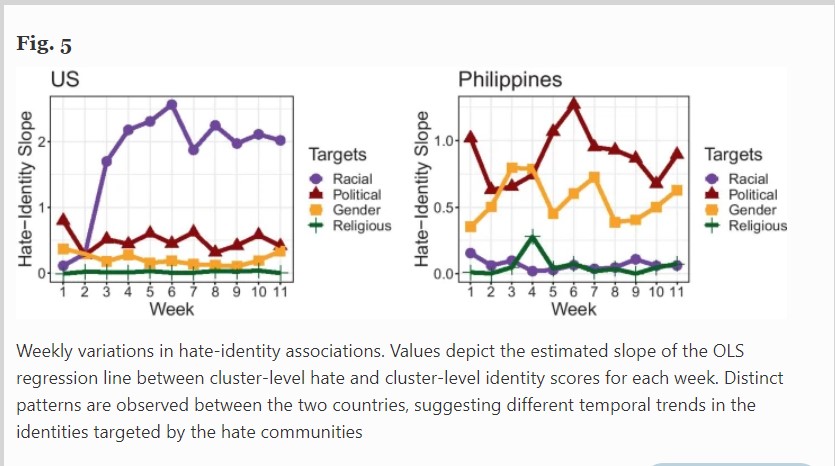
Research Spotlight: Hate Speech
In this paper, the authors propose a dynamic network framework to characterize hate communities, focusing on Twitter conversations related to COVID-19 in the United States and the Philippines
The Center for Informed Democracy and Social-cybersecurity (IDeaS), CMU's center for Disinformation, Hate Speech and Extremism Online has a new publication:
Uyheng, J., Carley, K.M. (2021). Characterizing network dynamics of online hate communities around the COVID-19 pandemic. Applied Network Science, 6(20).
Available online here: https://appliednetsci.
Hate speech has long posed a serious problem for the integrity of digital platforms. Although significant progress has been made in identifying hate speech in its various forms, prevailing computational approaches have tended to consider it in isolation from the community-based contexts in which it spreads. In this paper, we propose a dynamic network framework to characterize hate communities, focusing on Twitter conversations related to COVID-19 in the United States and the Philippines.
This paper shows that:
1) Hate speech is a small but persistent part of online dialogue in both the US and the Philippines.
2) While the actual level of hate speech is similar in the US and the Philippines, the hate communities are much more organized in the US.
3) Hate speech in the US is often directed at racial groups; whereas in the Philippines it is more likely to be directed at politicians.
4) Gender related hate speech is slightly higher in the US than the Philippines.
5) Communities of hate form and when these groups are small and isolated hate speech flourishes.
This work was supported in part by the Knight Foundation and the Office of Naval Research Grants N000141812106 and N000141812108. Additional support was provided by the Center for Computational Analysis of Social and Organizational Systems (CASOS) and the Center for Informed Democracy and Social Cybersecurity (IDeaS). The views and conclusions contained in this document are those of the authors and should not be interpreted as representing the official policies, either expressed or implied, of the Knight Foundation, Office of Naval Research or the U.S. government.
Authors Kathleen M. Carley and Joshua Uyheng


